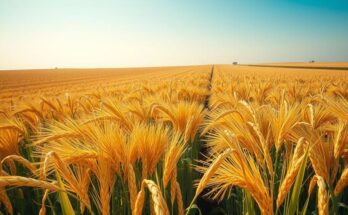Climate change is a growing threat to social stability. Extreme weather events contribute to the rise of modern slavery in Africa, where forced labour, human trafficking, and forced marriages are prevalent. Poverty, political instability, and economic vulnerability are exacerbated by climate-related disasters, making communities more susceptible to exploitation. To combat this, strong legislation, public awareness, and integrated climate policies are crucial.
Weather-related disasters linked to climate change are increasingly impacting societies, with an underexplored area being the rise of modern slavery stemming from extreme weather events. Legal scholar Daniel Ogunniyi highlights the intersection of climate change and modern slavery in Africa. The term modern slavery encompasses various exploitative practices, including forced labour, human trafficking, servitude, and forced marriage, which are prevalent across the continent.
Modern slavery lacks a precise legal definition but refers to involuntary actions, exploitation, and control. It manifests in various forms, such as descent-based slavery, especially in countries like Chad, Mali, Mauritania, Niger, and Sudan. Currently, the International Labour Organisation estimates that approximately 50 million people worldwide are victims of modern slavery, with around 7 million in Africa, particularly in countries such as Eritrea, Mauritania, and South Sudan.
The dynamics of modern slavery are exacerbated by climate change, as this phenomenon intensifies existing social inequalities and vulnerabilities. Extreme weather events can lead to loss of livelihoods and displacement, rendering individuals more susceptible to exploitation. Moreover, organized criminal networks and extremist groups exploit these vulnerabilities, often resorting to human trafficking and forced labour as a means of survival.
In Ghana, for instance, the impacts of drought contribute to human trafficking, with families sometimes forced to sell their children to labor agents who exploit them. Women and girls seeking better opportunities are frequently subjected to coercive working conditions as they migrate within the country. This highlights the dire need for awareness and preventative measures against modern slavery linked to climate-related challenges.
To combat modern slavery in Africa, governments must enact legislation aligned with international standards and strengthen regional collaborations to tackle the transnational aspects of the issue. Public awareness campaigns and educational programs addressing the risks of modern slavery should also be prioritized to protect vulnerable groups.
Addressing the root causes of poverty and inequality is critical, as these underlying factors contribute significantly to exploitation. Additionally, climate change policies should integrate commitments to combat modern slavery, ensuring that responses to climate change do not inadvertently facilitate exploitation. Lastly, companies in the renewable energy sector must be mandated to conduct thorough human rights due diligence to prevent modern slavery in supply chains as the world transitions to greener energy solutions.
Modern slavery in Africa is exacerbated by the impacts of climate change, creating an urgent need for comprehensive responses that intertwine climate action with efforts to curb exploitation. By strengthening laws, fostering regional cooperation, raising awareness, and addressing poverty, effective measures can be implemented to combat the rise of modern slavery amid changing climatic conditions. Furthermore, incorporating human rights considerations into climate policies is essential to avert unintentional harm during the transition to renewable energy.
Original Source: theconversation.com




